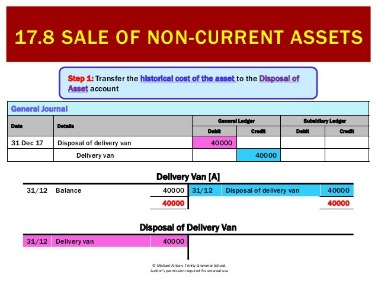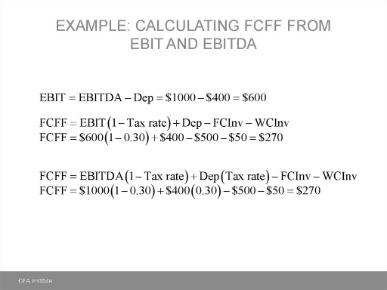
Accrued revenue and deferred revenue are both important concepts when it comes to managing a company’s finances. The key to recording accrued revenue is to ensure that all criteria for recognizing it have been met. This approach to reporting revenues follows Generally Accepted Accounting Principles (GAAP) and gives investors a better understanding of the company’s financial health. Multiple different kinds of revenue go on a company’s income statement.
The bill has not been sent out, but the work has been performed, and therefore expenses have already been incurred and revenue earned. For example, a company may earn commission on the sale of a building in the current accounting period for which it won’t receive payment until the next period. Utility companies invoice for the prior period’s use and often aren’t paid for another month.
Is accrued revenue an asset or a liability?
To help you along, we’ll explain accrued revenue and show how you can record it to improve your bookkeeping. A perfect example of where things can go wrong is when companies do not differentiate between earned and unearned revenue and keep putting accrued revenue into the revenue account. When this lack of differentiating occurs, it leads to an overstatement of both revenue and net income. Deferred income is very important in accrual accounting because sometimes companies receive advances for their goods or services. To prevent overstating certain accounts, companies need to differentiate between the revenue that they have earned versus revenue that they have not yet earned.

It is recorded as an asset on the company’s balance sheet, indicating that the company has a right to receive the payment in the future. Accrued revenue and deferred revenue are similar concepts, but they have slightly different meanings. Accrued revenue is income that a company has earned but for which it has not yet received payment. This type of revenue occurs when a company performs a service or delivers a product before it bills the customer. In accounting terms, it is considered to be an asset until the company invoices the customer and receives payment. A company records its accrued income on its consolidated balance sheet.
Sustainable Investing Topics
Many businesses record accrued revenue as a result of long-term projects. For example, a construction company may accrue revenue every month for delivering a new piece of hardware. The aerospace and defence industry also accrues revenue every year, owing to their contracts with the Indian government. Similarly, a landlord might book accrued revenue by recording each month’s rent payments. The landlord might bill the Indian government for the rent while recognising the income only after the month ends. When you invest, earn returns on your investments, but haven’t received the returns yet, you have an accrued income.
Accrued income is the earnings you’ve accrued in an account with an accounting period of a month, quarter, or year. If you own a mutual fund, accrued income is the money you’ve earned through other investments but haven’t yet received. This income is considered an asset because it serves as an estimation of what you’ll earn.
Under the accrual basis of accounting, financial events are recognized when they occur, regardless of when the cash is exchanged. On the financial statements, accrued revenue is reported as an adjusting journal entry under current assets on the balance sheet and as earned revenue on the income statement of a company. Businesses must handle accrued revenue according to the accrual accounting what are general and administrative expenses principle, one of the fundamental principles of accounting. This principle states that revenues and expenses should be recognized in the financial statements that correspond to when they are earned, regardless of when payment is received. In other words, accrual accounting focuses on the timing of the work that a business does to earn revenue, rather than focusing on the timing of payment.
Accrued Income in Balance Sheet
An accrued expense is a corporate finance term that refers to expenses that are recorded in accounting books before they have been paid. As the purchasing firm, you will record it when you incur the expenses and not when you pay them. For service contracts that operate under ASC 606 guidelines, accrued revenue occurs once all contract obligations have been met, not when an invoice is sent or payment is received. As mentioned earlier, it is reported as an asset on the balance sheet instead of revenue on the income statement. This means that a company can sometimes report higher revenue growth without actually receiving the cash.
Make an adjusting entry for this accrued revenue item in the books of Fine Repairing Company on 31 December 2016. But the fact remains that John has already earned interest for 6 months by 31 December 2019. When he draws up his Trial Balance on 31 December 2019, it may not show any record of the interest earned by that date. The trial balance may fail to disclose this accrued revenue or income unless a suitable adjustment is made.
- Being a long-term project, company ABC can choose to recognize each machinery or set of machinery delivered as a milestone, for which they’ll recognize the service revenue upon completion.
- The accrued income journal entry should show the corresponding balances.
- Let’s assume you run a consultancy agency for which you charge $20 per hour of consultation.
- You will only realize accrued revenue when there is a mismatch between the time of delivery of goods and services, and payment.
You provide a product or service to a client who needs it in exchange for an agreed-upon price. In other words, just because money has not yet been received, it does not mean that revenue has not been earned. Revenue recognition automation involves the use of business software to streamline the revenue recognition process. The invoice is dated March 1, but the payment will not be received until April 15.
Additionally, if you accrued revenue from offering a loan, the accrued interest adds to your total payment. In this case, longer delays before repaying your loan leads to a higher ROI overall. Earned revenue refers to the money you get for providing a good or service. Unlike accrued revenue, you make earned revenue right after the transaction ends.
Accrued Revenue FAQs
This means making sure that the goods or services have been delivered, any invoices sent out have been tracked, and any customer credit terms are understood. The basis of accounting which is based on accruals is called accrual basis [Wikidata]. In finance, an accrual (accumulation) of something is the adding together of interest or different investments over a period of time. Accrued revenue needs to be recognized because it is a measure of increasing income. However, the actual earning takes time compared to receipt of an amount that occurs almost instantly. Failing to account for accrued income can underestimate your profitability and distort the overall business outlook.
Accrued revenue can help companies assess their financial health and the impact sales have on their profits and the potential for growth over the long term. It helps organisations better monitor their profitability and identify the potential for problems, devise strategies, address issues and help them to remain in the game. As you try to understand accrued revenue, it’s understandable if some things are still unclear. As you learn more and put your knowledge into practice, everything will become clearer. In the meantime, here are the answers to some of the frequently asked questions about accrued revenue.
Calculating income with expenses in the same period allows you to lay out long-term financial plans. On the whole, this will help you stay ahead of incoming financial changes. Using this method, the company often recognizes accrued revenue before it is paid.
Tax Issues Arising in Connection with Distressed Debt Transactions – JD Supra
Tax Issues Arising in Connection with Distressed Debt Transactions.
Posted: Tue, 08 Aug 2023 07:00:00 GMT [source]
When cash is received for the service at the end of six months, a $300 credit in the amount of the full payment is made to accrued income, and a $300 debit is made to cash. This can happen if goods or services have been delivered, but invoices have not been sent out. In practice, this means that businesses should recognize their accrued revenues when they have earned them, regardless of when any money is physically received. Accrued revenue is a type of income that has been earned but not yet received.
This follows the accrual accounting principle, which states that revenue should be recognized when earned, regardless of when payment is received. For example, a company delivers a product to a customer who will pay for it 30 days later in the next fiscal year, which starts a week after the delivery. The company recognizes the proceeds as a revenue in its current income statement still for the fiscal year of the delivery, even though it will not get paid until the following accounting period. The proceeds are also an accrued income (asset) on the balance sheet for the delivery fiscal year, but not for the next fiscal year when cash is received.
